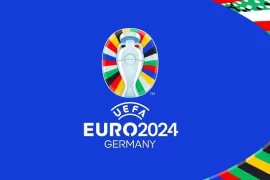Overview
Esports (electronic sports) or competitive video gaming are no longer confined to niche communities. Now, it has grown into a global cultural phenomenon and captivates millions of passionate fans across the world. However, to make eSports accessible and engaging for fans across different languages and cultures, eSports translation and localization come into play. These practices ensure that eSports content resonates with diverse audiences.

Additionally, the professional translation agency plays its role in this perplexing process. It bridges the language gaps and cultural nuances. Hence, it unites different linguistic enthusiasts from every corner of the world for their mutual passion for competitive gaming.
Moreover, some of the biggest esports that are in demand are Overwatch (300k viewers), DOTA 2 (15 million peak viewers), Fortnite (2M viewers), PUBG (88k viewers), etc.
So, let’s explore the important role of eSports translation and localization in bringing together diverse linguistic and cultural people from around the globe that nurture the growth of competitive gaming globally.
Importance of Translation and Localization in eSports
Video gaming, especially eSports, has become a sensation for many game lovers. Now, the translation of gaming is an increasingly essential part of the gaming industry. It involves translating subtitles, localizing video games, creating transcripts, and many other processes.
Therefore, all these operations are crucial to bringing the gaming industry to different linguistic markets. Furthermore, gaming translation services play a role in facilitating players from different linguistic and cultural backgrounds
Translating the Game’s Broadcasts and Commentary
eSports broadcasting is about showing video game tournaments to a large and diverse audience. These tournaments happen in different parts of the world, where all the players come together on a platform with fancy gaming equipment. The gaming events are arranged and themed according to the game being played.
So the translation of broadcasting and commentary for esports brings the excitement of video games to a big stage for everyone to watch and enjoy in their native languages. Casters/ commentators in video games speak over the gaming actions to engage, inform, and entertain the audience and viewers.
They need proper knowledge of the games and the teams playing the games to bring life to the match with words. There are two types of game casters.
- play-by-play casters/commentators (present running on-the-fly commentary)
- color caster/commentators (add extra information and comments to excite and engage the viewers)
In-Game Content Translation
Translating the in-game menus and HUD elements( mini-map in the corner of the gaming screen, the health bar, and other game-aiding items). Additionally, other user interface elements are translated to make the game accessible to players from different linguistic and cultural backgrounds.
The game lovers always want to know what’s new happening in the gaming world. Translation of game descriptions, patch notes, and update announcements provide all updates and information in the native language of the players.
Translating the Rules and Regulations
Translating the rules and regulations of esports tournaments ensures the different linguistic players and teams understand the guidelines for the competition.
Website Localization
Website localization for esports provides a localized version of esports information where game lovers, viewers, and fans can find news, updates, event schedules, and esports team information in their native languages.
The website uses software localization services to facilitate the localization of esports in the target market. They make the sports content accessible to a global audience. They have translators and localization experts who adapt software, websites, and other eSports digital content for different languages and cultures.
Therefore, software localization adjusts the video games to respect cultural sensitivities and preferences. And ensure that the players interact better with the games in their preferred language for a better gaming experience.
Social Media Engagement
In the esports era, social media facilitates giant global gatherings where game lovers from all around the world communicate and share their passion for gaming. However, language differences are a hurdle for social media engagement for these players.
Therefore, localization and translation play a crucial role in overcoming this challenge. Translating and adapting the eSports content according to the language and culture of the target audience bridges all linguistic and cultural gaps.
Consequently, the players efficiently participate in the gaming conversations. So, social media sites for eSports have become more engaging and welcoming to diverse linguistic and cultural fan bases.
Promotion and Marketing of eSports Events
Promotion and marketing of esports events are possible with localized marketing material that must resonate with the cultural preferences of the target audience.
So, the branding and sponsor messages need appropriate localization and translation to reach a good customer base and target audience effectively.
Cultural Competency
Employing staff familiar with different languages, regions, cultures, and preferences ensures culturally appropriate content and strategies for esports.
Stronger eSports Community
Translation facilitates effective communication between players, team members, fans, and viewers in different languages. Additionally, it is important to build stronger connections within the eSports community.
Wrap Up!
In conclusion, in the dynamic eSports world, game lovers and expert players approach from different corners of the globe. However, language and cultural differences present challenges to the substantial engagement of these different linguistic players on eSports platforms.
Moreover, eSports is a global phenomenon; it serves as proof that languages, cultures, and geographical distances can be transcended by advanced technologies, translation, localization, and thoughtful adaptations.







